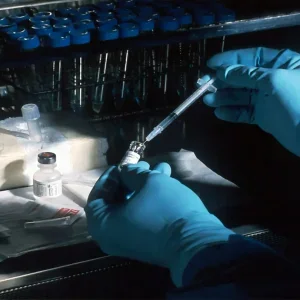Novartis’ oral endothelin A receptor antagonist (ERA) atrasentan has met the primary efficacy endpoint in the ongoing Phase 3 ALIGN study in patients with IgA nephropathy (IgAN).
The late-stage study met its primary efficacy endpoint at the 36-week interim analysis.
According to Novartis, the drug candidate met the primary efficacy endpoint by showing a clinically meaningful and highly statistically significant proteinuria reduction in IgAN patients receiving supportive care.
The change in proteinuria as calculated by urine protein to creatinine ratio (UPCR) from baseline to 36 weeks.
ALIGN is a global, randomised, multicentre, double-blind, placebo-controlled study. It compared the safety and efficacy of atrasentan versus placebo in patients with IgAN who are at risk of progressive loss of kidney function.
Secondary and exploratory objectives of the trial include assessment of the change in kidney function from baseline to week 136 as measured by estimated glomerular filtration rate (eGFR) along with safety and tolerability.
The late-stage trial randomised nearly 340 patients to receive once-daily oral doses of the investigational drug or placebo for close to 2.5 years.
Atrasentan’s safety profile has been consistent with the data reported from the Phase 2 AFFINITY study IgAN cohort, said Novartis. The company added the drug candidate to its portfolio through the acquisition of US-based Chinook Therapeutics.
The Swiss pharmaceutical firm intends to apply for potential accelerated approval for the drug candidate in the US in 2024 based on the findings of the interim proteinuria endpoint analysis.
Novartis chief medical officer and development president Shreeram Aradhye said: “These positive topline phase 3 data showcase the potential of Atrasentan to improve outcomes for patients with IgAN by demonstrating clinically meaningful proteinuria reduction.
“Along with investigational iptacopan, which recently also showed positive topline phase 3 results, and investigational zigakibart, our development portfolio of three highly differentiated late-stage therapies in IgAN has the potential to provide much-needed treatment options for people living with this debilitating disease.”
The topline results from the confirmatory endpoint analysis of the ALIGN study are anticipated in Q1 2026.






